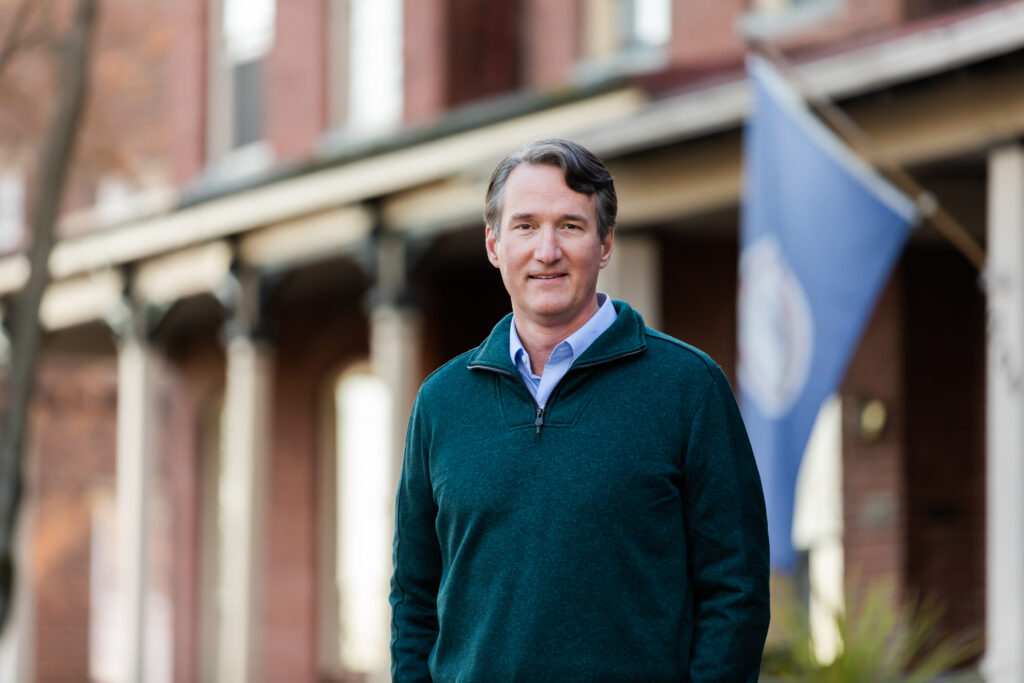Virginia Gov. Glenn Youngkin is looking for a signature issue to carry him through the remainder of his term in office. Like a Republican of old, he’s latched onto the idea of cutting the state’s income tax. What’s not to like, right?
The tax hikes to help cushion the blow to state revenue. Youngkin also proposes to raise the state’s sales tax, and broaden the types of items that it would apply to.
And allowing certain localities to raise their sales taxes, too.
It’s a triple bank shot of a policy idea that politics – namely, Democrats controlling the General Assembly – makes difficult.
But regarding the proposals on the table…how do they stack up? According to the Tax Foundation, there’s merit to the overall scheme:
Governor Youngkin’s plan is a net tax cut, providing a projected $589 million in state tax relief in the first full fiscal year in which it is implemented. In brief, the income tax rate reductions (plus several other provisions, including the expansion of the earned income tax credit and a small increase in the cap on scholarship tax credits) are larger than the sales tax pay-fors.
But there’s also an important caveat to those slim benefits:
The local windfall, however, cuts into taxpayers’ savings. Notably, Gov. Youngkin has called for stakeholders to come to the table to find ways to eliminate the local car tax, but this is not in the current plan. Doing so will be expensive. This additional revenue could be a downpayment on that effort, but if given away now with no strings attached, it may be difficult to include in subsequent negotiations.
Let’s be clear about Virginia’s dreaded property tax on cars: It will survive any and all attempts to “eliminate” it. Successive Republican and Democratic administrations, along with a variety of Democratic and Republican legislators, have had opportunities to end the car tax (well, not really…it’s a complicated shell game of the state footing the bill through the budget).
They refused.
And there’s a glaring omission in Youngkin’s proposal.
Just like decades of his predecessors of both major parties, there is no indexing of the tax brackets for inflation. Like a host of pols before him. Youngkin relies on bracket creep to fund the government. It’s a shoddy, dishonest way to keep the state’s lights on. But it’s also one that’s sufficiently hidden from public view.
And it’s why Ronald Reagan made indexing a key point of his sweeping tax reform package. In a national address Reagan said:
As it is now, if you get a cost-of-living raise that’s intended to keep you even with inflation, you find that the increase in the number of dollars you get may very likely move you into a higher tax bracket, and you wind up poorer than you would. This is called bracket creep. Bracket creep is an insidious tax. Let me give an example. If you earned $10,000 a year in 1972, by 1980 you had to earn $19,700 just to stay even with inflation. But that’s before taxes. Come April 15th, you’ll find your tax rates have increased 30 percent. Now, if you’ve been wondering why you don’t seem as well-off as you were a few years back, it’s because government makes a profit on inflation. It gets an automatic tax increase without having to vote on it. We intend to stop that.
Reagan did exactly that. As for Virginia? Mr. Youngkin, you’re no Ronald Reagan.
The opinions expressed in this article are those of the author and do not necessarily reflect the positions of The Republican Standard. It first appeared in American Liberty News. Republished with permission.

